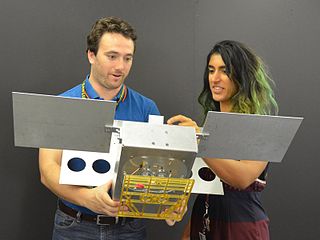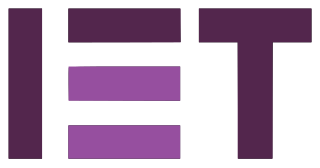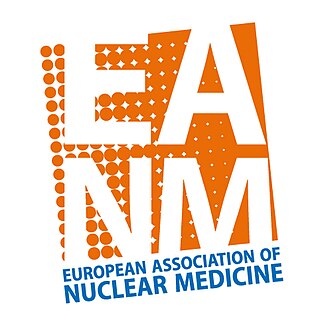Related Research Articles

Engineers, as practitioners of engineering, are professionals who invent, design, analyze, build and test machines, complex systems, structures, gadgets and materials to fulfill functional objectives and requirements while considering the limitations imposed by practicality, regulation, safety and cost. The word engineer is derived from the Latin words ingeniare and ingenium ("cleverness"). The foundational qualifications of a licensed professional engineer typically include a four-year bachelor's degree in an engineering discipline, or in some jurisdictions, a master's degree in an engineering discipline plus four to six years of peer-reviewed professional practice and passage of engineering board examinations.

The Institution of Engineers of Ireland or the IEI, is the second oldest Engineering Society on the islands of Great Britain and Ireland, and was established in 1835. The institution primarily represents members based in Ireland.

The British Computer Society (BCS), branded BCS, The Chartered Institute for IT, since 2009, is a professional body and a learned society that represents those working in information technology (IT), software engineering and computer science, both in the United Kingdom and internationally. Founded in 1957, BCS has played an important role in educating and nurturing IT professionals, computer scientists, software engineers, computer engineers, upholding the profession, accrediting chartered IT professional status, and creating a global community active in promoting and furthering the field and practice of computing.

The Institution of Engineering and Technology (IET) is a multidisciplinary professional engineering institution. The IET was formed in 2006 from two separate institutions: the Institution of Electrical Engineers (IEE), dating back to 1871, and the Institution of Incorporated Engineers (IIE) dating back to 1884. Its worldwide membership is currently in excess of 158,000 in 153 countries. The IET's main offices are in Savoy Place in London, England, and at Michael Faraday House in Stevenage, England.
The Engineering Council is the UK's regulatory authority for registration of Chartered and Incorporated engineers and engineering technician. The Engineering Council holds the national registers of over 228,000 Engineering Technicians (EngTech), Incorporated Engineers (IEng), Chartered Engineers (CEng) and Information and Communications Technology Technicians (ICTTech). The Engineering Council is also responsible for establishing and upholding globally acknowledged benchmarks of professional competence and ethical conduct, which govern the award and retention of these titles. This guarantees that employers, government bodies, and the broader society, both within the UK and abroad, can place their trust in the expertise, experience, and dedication of engineers and technicians who are professionally registered with the Engineering Council.

The World Association for Public Opinion Research (WAPOR) is an international professional association of researchers in the field of survey research. It is a member organization of the International Science Council.

The Chartered Quality Institute (CQI), formerly known as The Institute of Quality Assurance (IQA), is the chartered body for quality professionals. It improves the performance of organisations by developing their capability in quality management. As a registered charity, the CQI exists to advance education in, knowledge of and the practice of quality in the industry, the public sector and the voluntary sectors.
The Institution of Fire Engineers(IFE) is a global professional membership body for those in the fire sector that seek to increase their knowledge, professional recognition and understanding of fire through a global discourse. With over 100 years of history, the IFE is instrumental in shaping a future world that is safer from fire.

The Chartered Institution of Building Services Engineers is an international professional engineering association based in London, England that represents building services engineers. It is a full member of the Construction Industry Council, and is consulted by government on matters relating to construction, engineering and sustainability. It is also licensed by the Engineering Council to assess candidates for inclusion on its Register of Professional Engineers.
In the United Kingdom, a Chartered Engineer (CEng) is an engineer registered with the UK's regulatory body for the engineering profession, the Engineering Council. Chartered Engineers are master's degree qualified or can demonstrate equivalent work-based learning and have gained the appropriate professional competencies through education and working experience. Demonstration of competence is defined in the UK Standard for Professional Engineering Competence, assessed through professional review of academic qualifications and professional development. Formal, non-formal and informal learning can be assessed. The title Chartered Engineer is protected in the UK under law by means of the Engineering Council’s Royal Charter and Bye-laws. As of 2019 there are approximately 180,000 engineers registered as a Chartered Engineer. Chartered Engineers are registered through Professional Engineering Institutions (PEIs) licensed by the Engineering Council which are relevant to their industry or specialism.
The European Society for Engineering Education an organisation for engineering education in Europe. Commonly known as SEFI, an acronym for its French name, Société Européenne pour la Formation des Ingénieurs, it is also known in German as the Europäische Gesellschaft für Ingenieur-Ausbildung. SEFI was founded in Brussels in 1973 and has more than 300 members in 40 countries. It promotes information exchange about current developments in the field of engineering education, between teachers, researchers and students in the various European countries.
The European Distance and E-Learning Network (EDEN), originally named the European Distance Education Network - established in 1991, is an international educational association open to institutions and individuals dealing with e-learning, open education, and distance education. EDEN is a not-for-profit organisation, registered as a limited company under English law.

The International Institute of Refrigeration (IIR), is an independent intergovernmental science and technology-based organization which promotes knowledge of refrigeration and associated technologies and applications on a global scale that improve quality of life in a cost-effective and environmentally sustainable manner, including:
Commission des Titres d'Ingénieur is the main committee responsible for evaluation and accreditation of higher education institutions for the training of professional engineers in France. It regulates the issuance of the Diplôme d'ingénieur and use of the academic title of "Ingénieur Diplomé".
The European Network for Accreditation of Engineering Education (ENAEE) was established in 2006 as an organization to promote quality in engineering education across Europe and beyond. It is rooted in the Bologna process which aims to build the European Higher Education Area.
Membership of ENAEE is open to all bodies concerned with educational and professional standards in engineering. Such bodies may include accreditation and quality assurance agencies, professional organisations, associations of higher education institutions, employers’ associations, and engineering student bodies and their associations.

The European Association of Nuclear Medicine (EANM) is the leading professional organisation for nuclear medicine in Europe. Established in 1985, the EANM serves as an umbrella organisation comprising national societies, affiliated societies and individual members working in nuclear medicine or related fields. It is also dedicated to the promotion of nuclear medicine amongst international organisations like the International Atomic Energy Agency, EU institutions like the European Union and the general public.

The University of Public Service is a higher educational institution in Budapest, Hungary. Established in 2012, it is one of the youngest universities in Central and Eastern Europe; however, its faculties as former independent colleges look back much earlier.

The Institute of Industrial and Systems Engineers (IISE), formerly the Institute of Industrial Engineers, is a professional society dedicated solely to the support of the industrial engineering profession and individuals involved with improving quality and productivity.
The International System Safety Society(ISSS) is a non-profit professional organization for system safety engineers. ISSS was established in 1963 to support the development of system safety as a distinct engineering discipline.
References
- ↑ "European Safety and Reliability Association > Home page". esrahomepage.eu.
- ↑ Quality and Reliability Engineering International, News Digest, Volume 3, Issue 1 ,pp. 57–59, doi : 10.1002/qre.4680030110
- ↑ "Bookmakers Cocktail Club | Restaurant | Federal Hill | Baltimore". www.bookmakersbaltimore.com. Archived from the original on August 2, 2014.
{{cite web}}: CS1 maint: unfit URL (link) - ↑ "Gregg Moore's Chiropractors Blog". esrel2008.com.